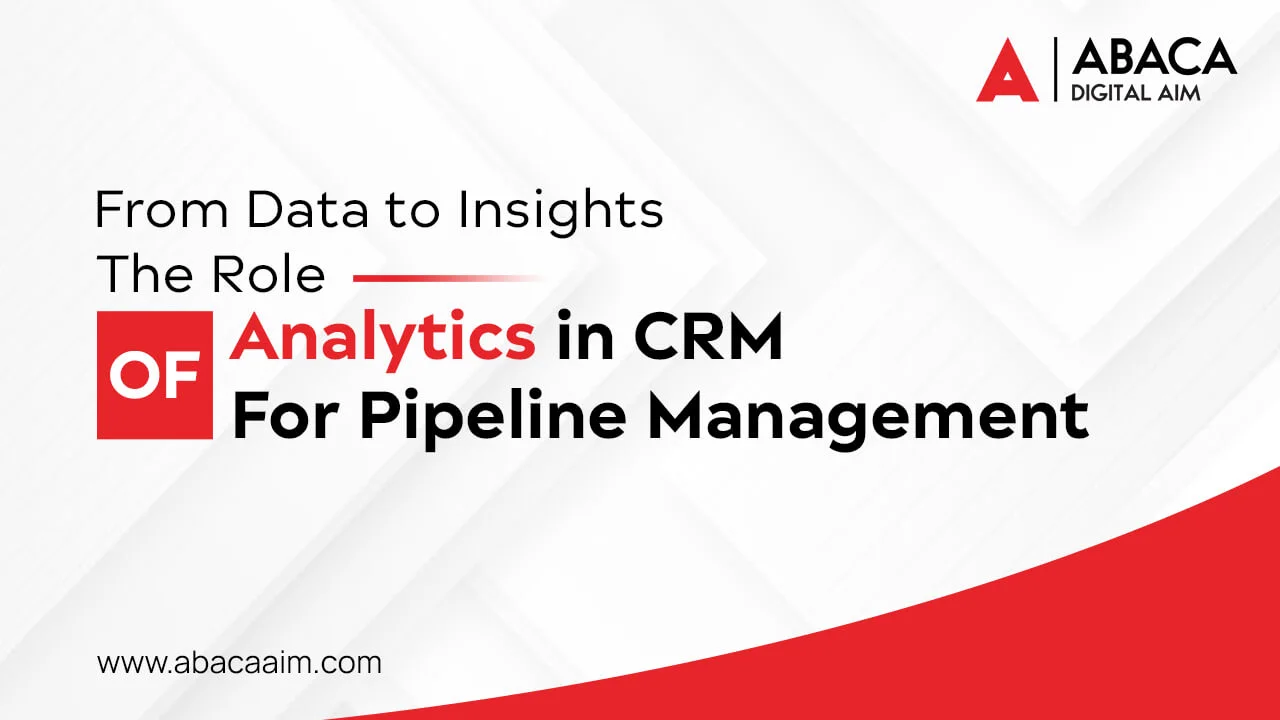
Customer relationship management (CRM) is an essential component of any successful business. It involves managing interactions with customers throughout the customer lifecycle to improve customer satisfaction, loyalty, and ultimately, revenue.
CRM pipeline management refers to the process of managing customer interactions, from initial contact through to purchase and beyond.
In today’s digital age, businesses have access to vast amounts of data, making it possible to gain insights into customer behavior and preferences. Analytics is a critical tool in this process, providing the means to analyze data and extract actionable insights.
In this blog post, we’ll explore the role of analytics in effective CRM pipeline management, from data collection and analysis to creating actionable insights.
Analytics relies on data, and effective data collection is the foundation of any successful CRM pipeline management strategy. The first step in this process is to collect relevant data from a variety of sources, including website analytics, retail walk-ins, social media, customer feedback, and sales data.
Once data has been collected, it needs to be cleaned and prepared for analysis. This involves identifying and correcting any errors or inconsistencies, standardizing data formats, and removing any duplicate or irrelevant data. This is a crucial step as inaccurate or inconsistent data can lead to erroneous insights and conclusions.
The best CRM sales management tool like AIM unifies and stores all the data from all the channels in a clean format, readily available at your fingertips.
Once data has been collected and cleaned, it’s time to start analyzing it. Analytics involves using statistical and machine learning algorithms to identify patterns and trends in data. There are many different types of analytics, including descriptive, diagnostic, predictive, and prescriptive analytics.
The ultimate goal of analytics is to extract actionable insights that can be used to improve CRM pipeline management. Actionable insights are insights that can be acted upon to improve business performance.
For example, if analytics from sales CRM for small business, identifies that a particular marketing campaign is not performing well, this insight can be used to adjust the campaign or redirect resources to more effective marketing channels. Alternatively, if analytics identifies that a particular customer segment is particularly profitable, this insight can be used to tailor marketing campaigns and product offerings to this segment.
To create actionable insights, it’s essential to identify clear goals and objectives for the analytics process. These goals should be aligned with the overall business strategy and should be specific, measurable, and time-bound.
It’s also important to communicate insights effectively to relevant stakeholders. This may involve creating reports or dashboards that summarize insights and provide clear recommendations for action. Any best sales CRM software provides a comprehensive reporting feature for a clear representation of data.
Analytics plays a critical role in effective CRM pipeline management. By providing insights into customer behavior and preferences, analytics can help businesses to:
For example, consider a business that sells software to small businesses. By analyzing sales data, website traffic, and customer feedback, from the sales CRM software for small business, the business may identify that there is a significant market for a specific type of software but that the current marketing campaigns are not effectively targeting this segment. By adjusting marketing efforts to better target this segment, the business could drive significant growth and increase revenue.
Similarly, by analyzing customer behavior and preferences, the business may identify that customers are experiencing difficulties with the onboarding process, leading to high levels of churn. By implementing process improvements to streamline the onboarding process, the business could reduce churn and improve customer satisfaction.
Consider using a CRM sales management software platform to monitor your CRM analytics. When selecting the best program for your organization, keep an eye out for features that are typically associated with reliable options.
By leveraging the power of analytics, businesses can optimize their CRM for pipeline management to drive growth and improve performance.
AIM is a premium CRM that is a fantastic value add for sales and marketing automation with integrated CRM capabilities.
Want to witness AIM in action while getting answers to your questions? Book a free demo, and we’ll be happy to demonstrate how AIM can work for your business.